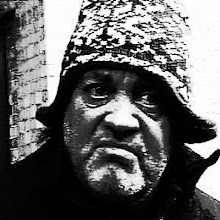In defence of yesterday's Day of Action, many who work in the public sector maintain the work they do is hugely important, as evidenced by the chaos that ensues when they go on strike. However, one of the main reasons for the public sector having such an impact is due to many of its branches being virtual monopolies. Withdrawal of labour ipso facto has a huge impact.
The work BT did when it was a government owned monopoly was hugely important, but when competition entered into the market through deregulation in the 80s and 90s, BT became less important - and largely irrelevant - as there was a (invariably cheaper) private sector alternative.
Nationalise all garages and suddenly all garage mechanics perform vital and hugely important work (and are incidentally able to hold the country hostage if their demands are not met).
Crippling strikes that affect the public are the preserve of the public sector. Due to the presence of competition, strikes in the private sector affect only those they are meant to affect - the shareholders (and of course those employees who do not wish to strike and may lose their jobs as a consequence). This gives public sector employees vast bargaining power when negotiating pay and conditions; power not available to private sector employees. This power must be wielded responsibly and not in pursuit of unrealistic goals that assume an infinitely elastic public purse.
Incidentally, for union leaders to cherry-pick specific occupations at the bottom of the public pay-scale to justify their cause is disingenuous and massaging the data to suit the desired result. The same can be said of governments cherry-picking top NHS consultants' pay to justify their position. These are not matters relevant to discussions over final salary, index-linked pensions and their affordability across the entire public sector spectrum - top to bottom - in today's economic climate. The issue of low pay is precisely that - an issue of low pay for specific occupations. To drag this into the overall argument is a classic red herring.
I have to report that Hayley's mother, Sylvia (or Caravan, as she was known in the family), died yesterday after a short battle against cancer. Following the removal of a malignant melanoma some 4 years ago, she recently complained of stomach pains. On analysis she was found to have an enlarged lymph gland under one arm. A CT scan a couple of weeks ago showed rampant cancer in her brain, lungs and stomach. The end was swift, but (following the administration of palliative pain relief) painless.


3 comments:
I didn't know Hay's mother (for heavens' sake I have never met either you or Hay) but still I count you as a friend and somehow the sadness of a friend touches me, just a little. I hope that this does not sound too false nor mawkish - it is not intended to be.
Alan: Your thoughts are appreciated. The blogosphere engenders friendships based quantum entanglement (the meshing of intellects at a distance), rather than closeness.
...or should I say, proximity.
Post a Comment